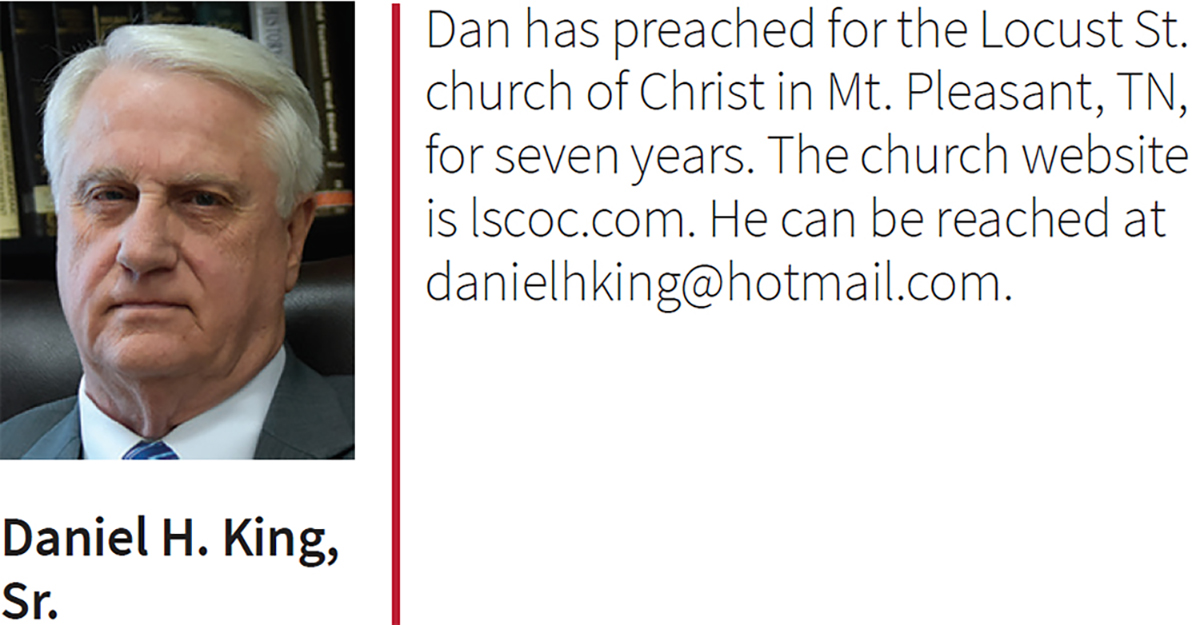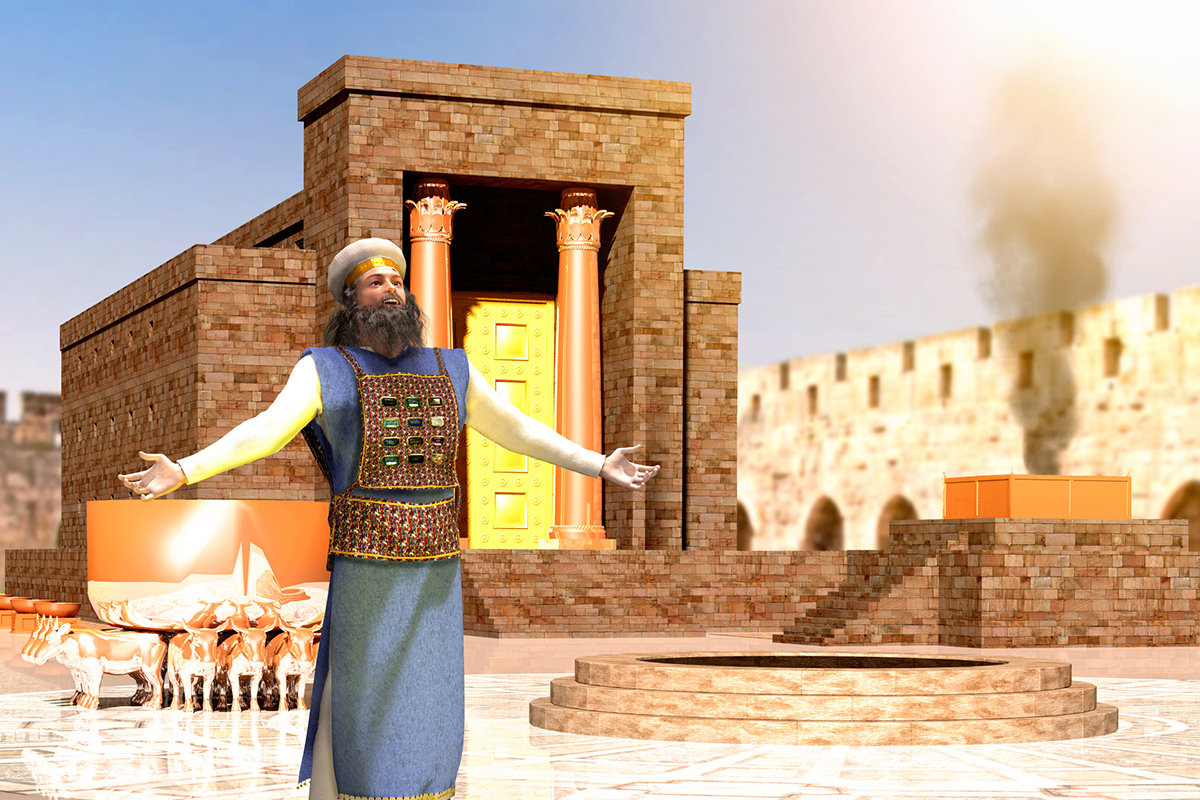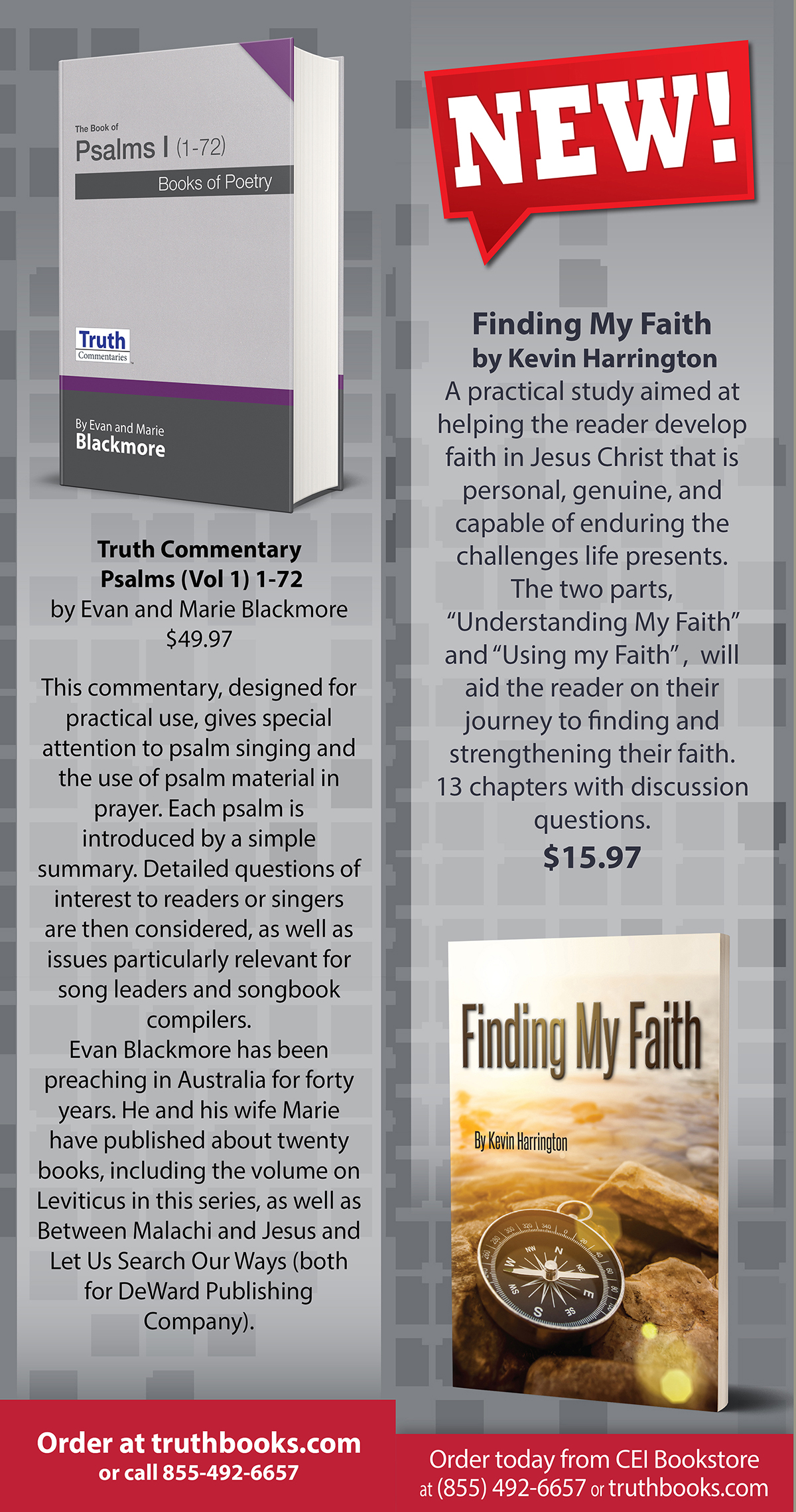
by Daniel H. King, Sr.
Synopsis: Down through history, countless men served as Jewish high priests—offering gifts and sacrifices, serving as intermediaries on behalf of the people. Jesus, our Great High Priest, excels them all.
by Daniel H. King, Sr.
The writer of the letter to the Hebrews stressed the overshadowing of the old covenant by the new in several well-planned and carefully orchestrated ways. The special position of the legal system (the Torah), its central shrine (the Temple), and its personnel (the priesthood), with its central figure (the kohēn gadōl, i.e., the high priest), the author argued, must give place to a different and superior reality under the aegis of the Messiah, Jesus. "If that first covenant had been faultless, then would no place have been sought for a second," he wrote (8:7). This position is forcefully advanced throughout the letter, suggesting that every aspect of the old Jewish system had been displaced by the work of Christ on the cross (cf. 9:11-28).
Early in his discussion, the author emphasized the High priesthood of Jesus, in comparison with that old order of things, saying, "Wherefore it behooved him in all things to be made like unto his brethren, that he might become a merciful and faithful high priest in things pertaining to God, to make propitiation for the sins of the people. For in that he himself hath suffered being tempted, he is able to succor them that are tempted" (2:17-18). The word translated "succor" in this context is boētheō which means "to aid or relieve; to help or succor." The context suggests that this aid and relief is given, especially in times of trial or temptation.
In the verses that follow, he urged his readers to "consider the Apostle and High Priest of our confession, even Jesus" (3:1). Clearly, the high priesthood of Jesus is a significant element of his overall argument in the epistle. Throughout his further elucidation of this theme, he makes the following important points about that One whom he designates "our compassionate High Priest":
He was a merciful High Priest. This feature of His character is introduced at 2:17, but is emphasized at 4:15, which says, "For we have not an high priest which cannot be touched with the feeling of our infirmities; but was in all points tempted like as we are, yet without sin." For our part, this is perhaps the most critical aspect of the Lord's priesthood, for it shows why the incarnation was central to the divine plan for human redemption. Christ was made flesh so that He could serve as a High Priest who understood the human condition and showed mercy to repentant sinners.
He was a faithful High Priest. His faithfulness is stressed in 2:17. The author follows up on this notion in 3:5-6, noting how much more so He was, even than the great man Moses. No doubt, people of that time would have compared the transcendent figure of the flawless Christ, Jesus, to the extremely flawed high priests who served in the Jerusalem sanctuary. Caiaphas and his son-in-law, Annas (or Ananus ben Ananus; Hebrew: chanan, meaning "merciful" or "gracious"), were two men mentioned in the gospels. This unfortunate name for Annas may even have helped to cement the appropriateness of the term to describe Jesus, for it was common to refer to that Jewish high priest as a "viper" rather than a merciful man, despite his name.
As a High Priest, He was successful in an unprecedented way. The deliverance from sins, which His ministry affords, is without limitation. He is able "to save to the uttermost" those who draw near to God through Him (7:25). Previous priesthoods were limited by their human aspect—occupied by mere men, restricted by the limitations of their humanity, and often troubled by their faults and foibles. Jesus was not so, and His priesthood was not thus bounded. The saving power of His ministry had no precedent, only shadowy figures to presage it.
He was a "for ever" High Priest. Previous human priests were limited by lifespan. Most died in office and were succeeded by sons or other relatives. Jesus abides a priest forever by the power of an endless life: "He abideth for ever" (7:17-24). Previous priesthoods brought great change to the community owing to the change in nature of the man involved. The high priest might be a good man, but he also might be a bad man. He might be greedy and self-serving. He might be quite immoral. Thus, with the changing of leaders, there was an accompanying change of atmosphere and climate in the religious circumstances of Israel. With Jesus as High Priest, however, all of that changed. Because His is an eternal priesthood, it is also an "unchangeable" one (7:24).
He was a High Priest who was holy, guileless, undefiled, and separated from sinners. All of these words are descriptive of a singular aspect of His nature. Each of these picturesque terms is employed to describe Him in Hebrews 7:26. They mean that He was pious and consecrated to God, that He was harmless or free from evil in His own being, that He was not defiled by stain contracted from others (temptation left no trace of evil in him). He was distinct from those who have themselves committed transgression, and thus need to be cleansed themselves for them to be in a position to purge the dross from other souls. Simply put, He was not personally a participant in any disobedience to God. Therefore, He was worthy to be, not only the High Priest proffering the sacrifice for human sin, but the offering itself, the sacrifice! He "through the eternal Spirit offered Himself without blemish unto God" (9:14). How efficacious was this offering? The writer proclaims, "We have been sanctified through the offering of the body of Jesus Christ once for all" (10:10). Such a thing had never happened before, and it will never happen again. Furthermore, there is no need for it to be repeated (contra the "sacrifice of the Mass").
He was a High Priest made higher than the heavens. So the writer declares in 7:26b. Why so? Because, as it is further explained elsewhere (4:14), He "passed through" or "passed into the heavens." So, the Gospel of Mark concludes with the words, "So then, the Lord Jesus, after He had spoken to them, was received up into heaven, and sat down at the right hand of God." This was unprecedented. High Priests never sat down in the Temple complex. There were no seats as furniture within that holy place, nor was a need for them. In that former sanctuary, there was always more work to be done. They went inside to offer sacrifices, and when they had finished for the time, they left until it was needful for them to go there again to offer other sacrifices. There were always new sacrifices to offer under the law. Jesus offered one sacrifice and was finished. The Bible says He "sat down." This was so because His work was complete, His sacrifice was singular and sufficient. "For by one offering He has perfected forever those who are sanctified" (10:14); and, "when He had offered one sacrifice for ever, (He) sat down at the right hand of God" (10:12; 1:3; 8:1; 12:2).
He was a High Priest who was eternally perfected. In 7:28, the author opined that human priests throughout history had all received appointment to their ministry, "having infirmity," (or "in their weakness"), that is to say, imperfect in their humanity in all respects. Jesus, on the other hand, presented Himself as "a Son perfected forevermore" (huion eis ton aiōna teteleiōmenon). He had been made perfect for His sacrificial work by the things which He suffered (2:10; 5:9).
The high priests under the old covenant were inferior in every way, therefore, to our "great priest," Jesus, "having a great priest over the house of God; let us draw near with a true heart in fullness of faith. . ." (10:21). Here is the point: Our High Priest has performed all of His functions with flawless perfection. Now it is time for us to do our part. Rather than pulling away or drawing back, we must draw closer to God. After all, that is what He did in order to make possible (Heb. 7:19; Jas. 4:8). 


